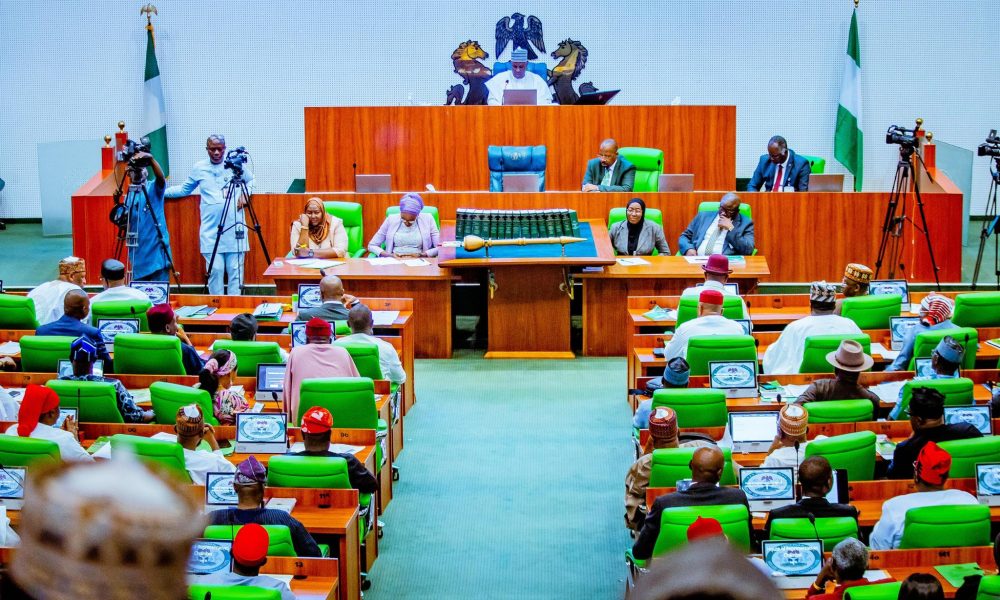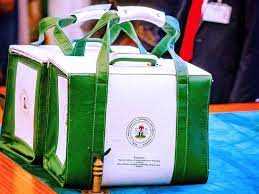
With a flurry of positive comments, the House passed the 2024 appropriation bill on Friday after lawmakers aired their submissions at plenary for two days

The N27.5 trillion budget proposed for 2024 has passed second reading in the House of Representatives.
The House passed the appropriation bill on Friday after lawmakers aired their submissions on the estimate during plenary held for two consecutive days.
Debate on the bill began on Thursday, November 30, about 24 hours after the presentation of the proposal by the President, Bola Ahmed Tinubu.
Recall that OrderPaper had earlier reported President Tinubu’s presentation of the budget and the decision of the House to schedule debate on its general principles for Thursday and Friday.
OrderPaper also reported the previous debates of the lawmakers, many of whom called for a quick but careful scrutiny of the budget before approval.
Contributing to the debate, Billy Osawaru, (APC, Edo), said the legislature needed to prioritise its oversight function when the budget is passed.
The lawmaker blamed the legislature for the poor implementation of previous budgets and urged that the 2024 budget be monitored closely for effective implementation.
He said “performance benchmarks for the House should be presented to committees to ensure that the lawmakers are held accountable for their oversight functions. The House needs to carry out their oversight functions to ensure good implementation of the budget.”
Supporting this submission, Inuwa Bassi (PDP, Yobe), asked that the lawmakers work to ensure that the goals of the budget are actualized.
Bassi described the budget as a people-centred budget which will improve the standard of living in the country if effectively implemented.
“As legislators we must scrutinise the budget, for this is the reason we are here. We must go out for oversight to ensure effective implementation of the budget.We also need to ensure equity, fairness, justice without which there won’t be justice, good governance and progress,” he noted.
He also observed that insecurity must be dealt with for national development to occur.
More demands for increased allocation to education
However, Clement Jimbo (APC, Akwa Ibom) asked that the allocation to the education sector should be increased to at least 12.5 percent of the annual budget.
He observed that the amount allocated to the sector is only 7.5 percent of the budget and is significantly lower than the recommendation of the United Nations Educational, Scientific and Cultural Organization, (UNESCO).
“Education plays a key role for any nation that wants to go far. The president has done well to put our allocation for education to 7.5 percent, which is higher than what we had last year. We need to improve the allocation for education to at least 12.5 per cent.”
Oboku Oforji (APC, Bayelsa) also raised concern about the rising exodus of lecturers and teachers in the country.
He said the exodus of lecturers due to poor welfare also makes it imperative to focus on the education sector.
“The exodus of our lecturers in our higher institutions is disturbing. When you ask, they’ll say poor welfare, insecurity. These are the critical issues they bring up, so we must pay attention to the education sector.”
He also asked that the House prioritise public and private sector partnerships.
He said “this will reduce spending, and increase revenue. When we pass the budget, Nigerians want to feel the impact. When the budget is passed, Nigerians want to see the price of goods come down. They want a robust economy.”
At the conclusion of the debate, the House passed the bill for second reading. But this was after the Deputy Leader of the House, Ali Halims, moved a motion for the adjournment of the plenary till 12th of December to allow standing committees interface with relevant MDAs for budget defence.
The 2024 budget proposal has an aggregate expenditure of N27.5 trillion, a recurrent expenditure of N9.92 trillion, capital expenditure is N8.7 trn, deficit projected at N9.18trn and a debt servicing of N8.25 trillion.
The defence sector got 12 percent of the budget which is N3.25 trillion and infrastructure is N1.32 trillion.
The education sector has been allocated N2.18 trillion, while the health sector was allocated N1.33 trillion.
